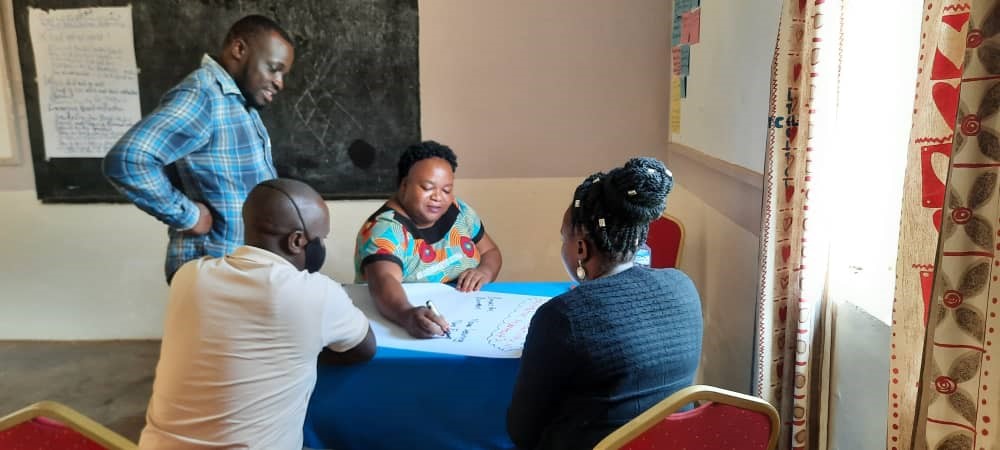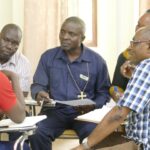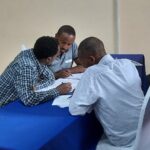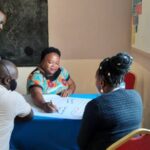EASUN organized and facilitated a workshop for community and organizational change facilitators in Kampala, Uganda, from 30th March to 1st April 2022. The workshop, dubbed “Creativity is the Heart of Facilitation”, built skills and awareness in the use of tools, methods and techniques in creative ways that enable local experiences and knowledge to be the drivers of learning in change and development processes of individuals, organizations, and communities.
The workshop brought together 14 community outreach staff and facilitators of change in organizations from Uganda and Kenya. Learning was focused on developing skills in transformative facilitation, especially the ability to leverage creativity and participatory engagement of community members in project learning situations. The design of workshop processes enabled participants to learn from their own experiences. On the first day, for instance, participants shared incidents from activities in which they had experienced facilitation in specific ways. Critical reflection on the highlighted experiences triggered further curiosity to learn more about methodologies that support transformative learning and change in organizations and communities.
Leverage openness
Use of art was extensively employed in the learning processes. Participants developed and learnt through role plays and other creative methods such as images and poetry. Such tools and techniques help leverage openness in individuals and communities being facilitated in processes of conscious change management. Using the creativity of participants themselves is also particularly helpful in supporting facilitators not to impose their own ideas or knowledge before participants have surfaced their own experiences and emerging questions.
A session titled “Creating my own tool” gave participants the chance to explore tools that can be applied in ways that enable people to feel safe and open up when navigating issues that are culturally sensitive. Participants engaged in exercises that brought them face to face with challenges that may arise in situations that are dominated by differences in values, perspectives, and assumptions. The exercise also increased awareness of how facilitators’ own values may impact the quality of their facilitation.




